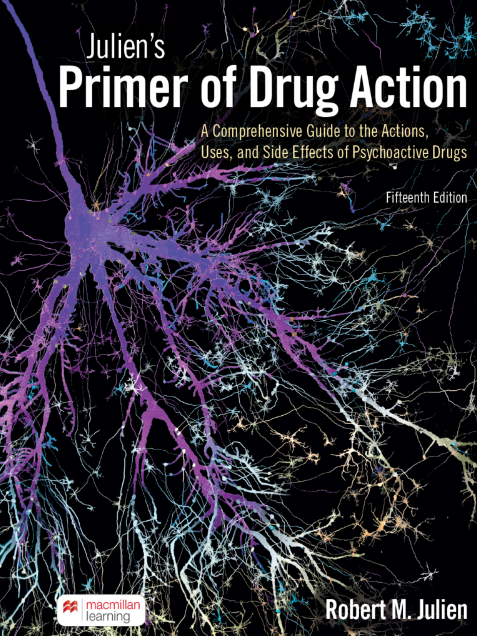As a youth I spent considerable time in my father’s pharmacy in
Seattle. I remember being fascinated by the question of why
someone would purchase aspirin to treat a headache or obtain a
prescription for Dilantin in order to prevent seizures.
Understanding the mechanism of “why” a drug might effectively do
something was a childhood fantasy, but it became a deeply
engrained ambition. Eventually, I obtained a Ph.D. in pharmacology
at the University of Washington. I became a professor at the
University of California at Irvine and directed a
psychopharmacology laboratory, studying epilepsy, antiepileptic
drugs, and hypnotic drugs. In 1977, I completed my M.D. at UC
Irvine and then became a professor of pharmacology and
anesthesiology at Oregon Health Sciences University, followed by a
25-year clinical practice as an anesthesiologist at a large community
hospital in Portland. Through all this I wrote extensively, taught
pharmacology and anesthesiology, and eventually traveled
extensively teaching psychopharmacology.
The story of the origin of this book actually began on November 13,
1971. At that time, I was a young professor at UC Irvine teaching and
conducting psychopharmacology research. Tragically, a plane crash
took the lives of three football coaches from a neighboring college,
California State College, Fullerton, along with the pilot of the plane.
As a result of the crash, that college was left without teachers for
their winter classes. They asked UC Irvine for assistance. I agreed to
teach one of their scheduled courses in drug education, starting in
January 1972. Following the course, I complained to a senior
colleague that I had no materials from which to teach. I naively
stated that someone ought to write a book on psychopharmacology.
A few weeks later I received in the mail a contract from his
publisher. I signed the contract and wrote what turned out to be the
first edition of this book. Since then, updated and expanded editions
have appeared about every three years.
Thus, counting my boyhood experiences in my father’s pharmacy, I
have been a witness to the evolution of psychopharmacology for 70
years, from its earliest days in the 1950s to the present. This lifelong
passion for psychopharmacology is what led me to embark on this
15th edition of Julien’s Primer of Drug Action.
As in each of the prior editions, I strive in this 15th edition to
present the latest developments in psychopharmacology as clearly
and concisely as I can, describing the general principles of structure
and mechanisms of action of each class of psychoactive drugs, as
well as providing specific information about the individual agents.
Also like prior editions, this edition is divided into four parts: (1)
Chapters 1–3 provide an introduction to the basics of
psychopharmacology; (2) Chapters 4–10 cover the concept of
addiction and the various kinds of drugs of abuse; (3) Chapters 11–14
cover the different classes of psychotherapeutic drugs; and (4)
Chapters 15–18 cover the uses and effects of psychoactive drugs in
special populations (pregnant women, children and adolescents,
and older adults), ending in Chapter 18 with a review of
psychopharmacology in the context of the COVID-19 pandemic and
with a look into the future of the field.
The chapters on drugs of abuse provide historical context and
epidemiological updates, discussions of the classic agents, and
descriptions of the most recent drugs of concern, as well as the
latest developments in regard to pharmacological treatments of the
disorders associated with abuse of these drugs. Each chapter on
psychotherapeutic drugs includes an overview of the disorders for
which the drugs are indicated, discussion of the mechanisms of
action of the drugs, and discussion of the rationales for drug
treatment.
Certainly, there is overlap between the therapeutic and addictive
effects of drugs. Many types of therapeutic drugs, such as the
stimulants, benzodiazepines, and opiates, are involved in the
ongoing epidemic of abuse and overdose deaths. Extraordinary
efforts are being made to develop products that are resistant to
misuse and to diversion into illicit channels of distribution. At the
same time, research on substances primarily considered to be drugs
of abuse (such as the psychedelic drugs and cannabis) is exploring
new therapeutic possibilities. As always, we psychopharmacologists
are optimistic that scientific investigation will result in new insights
into the etiology of mental illness and addiction and that the future
will bring more effective treatments for these devastating disorders.
In the years since the 14th edition, societal interest in
psychopharmacology has continued to increase. New features and
focuses that characterize this 15th edition reflect the following
factors involved in this increasing interest:
The opioid crisis has resulted in hundreds of thousands of
deaths, a majority of which followed from the adulteration of
opioid products with fentanyl and potent fentanyl derivatives.
Rapid-acting opioid antagonists are now widely available.
Increasing public acceptance of medical and recreational
marijuana, cannabidiol (CBD), and other cannabis products has
accompanied changes in their legal status.
Pharmacological management of opioid and alcohol
dependence has gained increasing interest.
New antipsychotic medications with off-label uses continue to
appear commercially.
New products for the treatment of bipolar depression have also
continued to appear.
Psychedelic psychopharmacology has expanded widely,
including with an increasing therapeutic use of psychedelic
drugs for treatment of pain and depression.
Psychotherapeutic drugs for treatment-resistant depression
have become an expanding focus of research.
Medications to treat personality and other disorders have also
gained increasing interest.
The treatment of cognitive dysfunction in Alzheimer’s disease —
both its promises and its failures — continues to be a focus of
research.
Off-label uses of psychoactive medications continue to expand.
The COVID-19 pandemic has had profound effects on our
society, including effects on mental health and long-term
effects of having been infected with the virus.
Finally, a word about a new feature in this edition, Dr. J’s Musings: it
is my privilege to share some of my “musings” about events that
have occurred during my long career in psychopharmacology. I
hope that the reader will find them interesting, informative, and
perhaps even entertaining.

















